questionnaire - Eurofound
advertisement
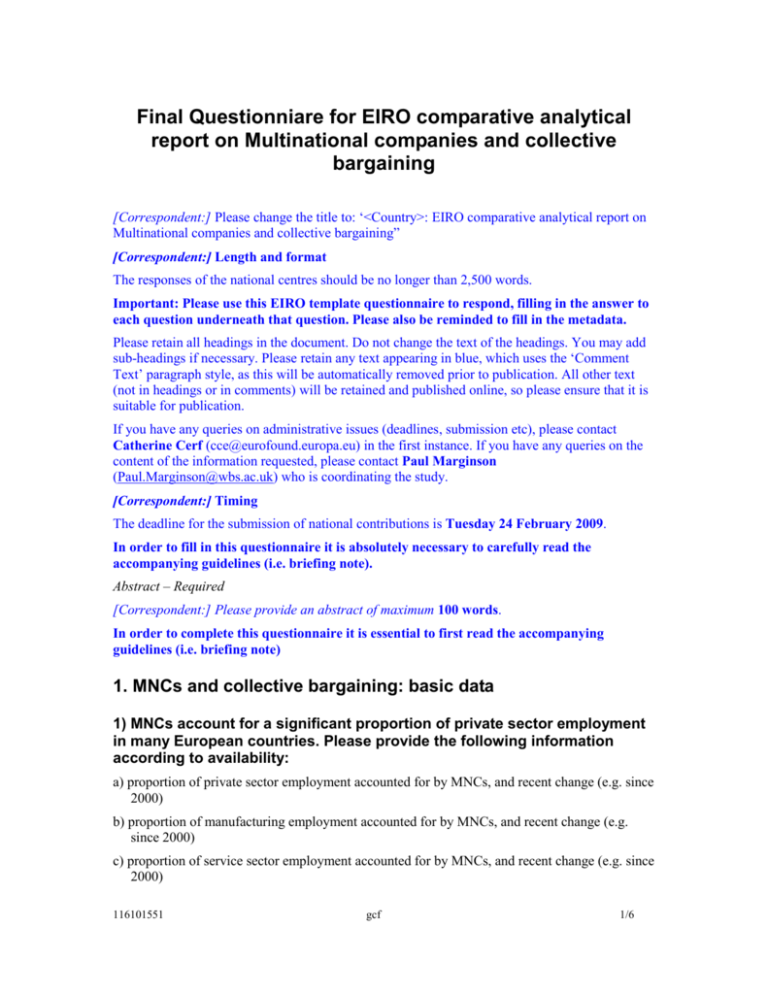
Final Questionniare for EIRO comparative analytical report on Multinational companies and collective bargaining [Correspondent:] Please change the title to: ‘<Country>: EIRO comparative analytical report on Multinational companies and collective bargaining” [Correspondent:] Length and format The responses of the national centres should be no longer than 2,500 words. Important: Please use this EIRO template questionnaire to respond, filling in the answer to each question underneath that question. Please also be reminded to fill in the metadata. Please retain all headings in the document. Do not change the text of the headings. You may add sub-headings if necessary. Please retain any text appearing in blue, which uses the ‘Comment Text’ paragraph style, as this will be automatically removed prior to publication. All other text (not in headings or in comments) will be retained and published online, so please ensure that it is suitable for publication. If you have any queries on administrative issues (deadlines, submission etc), please contact Catherine Cerf (cce@eurofound.europa.eu) in the first instance. If you have any queries on the content of the information requested, please contact Paul Marginson (Paul.Marginson@wbs.ac.uk) who is coordinating the study. [Correspondent:] Timing The deadline for the submission of national contributions is Tuesday 24 February 2009. In order to fill in this questionnaire it is absolutely necessary to carefully read the accompanying guidelines (i.e. briefing note). Abstract – Required [Correspondent:] Please provide an abstract of maximum 100 words. In order to complete this questionnaire it is essential to first read the accompanying guidelines (i.e. briefing note) 1. MNCs and collective bargaining: basic data 1) MNCs account for a significant proportion of private sector employment in many European countries. Please provide the following information according to availability: a) proportion of private sector employment accounted for by MNCs, and recent change (e.g. since 2000) b) proportion of manufacturing employment accounted for by MNCs, and recent change (e.g. since 2000) c) proportion of service sector employment accounted for by MNCs, and recent change (e.g. since 2000) 116101551 gcf 1/6 2) Please provide any available information on the breakdown of employment in multinationals between foreign-owned MNCs and homebased MNCs 3) What is the level of collective bargaining coverage amongst MNCs, and how does this compare with levels of collective bargaining coverage within the private sector? In the absence of precise figures, please provide an estimate of whether it is higher or lower than the average in: i) the private sector overall ii) manufacturing iii) private services 4) In countries characterised by multi-employer bargaining arrangements for the manufacturing and/or private service sectors, are MNCs covered by sector agreements? What is the nature of the relationship between MNCs and sector agreements? a) If Yes, do they mainly conform with the provisions specified in these agreements? b) If No, do MNCs conclude their own company agreements? If so, what if any relationship do these company agreements have with the sector agreement? 5) In countries characterised by single-employer bargaining arrangements for the manufacturing and/or private service sectors, to what extent are MNCs regarded by other employers as pattern setters for wage negotiations? 2. MNCs and change in national systems of collective bargaining 1) To what extent have MNCs been a source of recent change in the agenda and outcomes of collective bargaining in respect of any of the following issues. Please distinguish between manufacturing and private services: a) payments systems? If so, please elaborate and give examples. b) working time arrangements? If so, please elaborate and give examples. c) flexibility arrangements (other than working time)? If so, please elaborate and give examples. d) handling restructuring? If so, please elaborate and give examples. 116101551 gcf 2/6 2) Are any of these changes associated with MNCs headquartered in particular countries? If yes, which countries? 3) Are MNCs introducing new issues onto the bargaining agenda? If so, what are these new issues? (Examples might include equality and diversity practices; environmental issues; new employee participation practices; teleworking.) 4) Are any of these new issues associated with MNCs headquartered in particular countries? If yes, which countries? 5) In countries characterised by multi-employer bargaining arrangements for the manufacturing and/or private service sectors, what has been the role of MNCs in opening up greater scope for company negotiations? Please distinguish between developments in manufacturing and private services. a) are company negotiations mainly confined to issues on which sector agreements i) provide openings and/or a framework? ii) establish minimum standards or conditions? b) are there company negotiations on issues which are not addressed by sector agreements? If yes, please give examples. c) are there any instances of company negotiations resulting in breaches of provisions in sector agreements? If yes, please give examples. 6) In countries characterised by multi-employer bargaining arrangements for the manufacturing and/or private service sectors, are there any recent examples of MNCs: i) leaving a sector agreement? If yes, please give details. ii) placing new operations or sites outside of the coverage of the sector agreement(s) which apply at existing sites? If yes, please give examples. 7) In countries characterised by single-employer bargaining arrangements for the manufacturing and/or private service sectors, is there any evidence of the practice of ‘double-breasting’ by MNCs? (Double-breasting is when companies recognise trade unions for collective bargaining purposes at longer established sites, but not at more recently opened ones.) If yes, please indicate the extent of the practice and provide examples. 116101551 gcf 3/6 3. MNCs and the cross-border dimension to collective bargaining 1) Is there evidence of MNCs using comparisons of labour costs, flexibility and performance drawn from company operations in other countries in the course of local company negotiations? If yes, please give examples when answering the following: i) in which sectors does this typically occur? ii) what is the geographical focus of the comparisons (e.g. western Europe, eastern Europe, Asia, worldwide)? iii) what is the impact of these comparisons on the outcome of local negotiations? 2) Is there any evidence of threats to relocate operations influencing the agenda and outcomes of local company negotiations? If yes, please give examples when answering the following: i) in which sectors has this occurred? ii) what are the destination countries / regions of the global economy for any threatened relocations? iii) what has been the impact on the outcome of local negotiations? 3) Is there evidence of MNCs seeking to introduce so-called ‘best’ practices and/or corporate policies from their operations in other countries in the course of local company negotiations? (This may arise through the use of benchmarking.) If yes, please give examples when answering the following: i) in which sectors does this typically occur? ii) is the process linked to the use of comparisons of labour costs, flexibility and performance or other Human Resouces policies (if so, please specify)? 4) Do MNCs employ significant numbers of posted workers (e.g. amounting to more than 5% of the workforce)? If yes, i) in which sectors does this typically occur? ii) are these posted workers covered by local sector and/or company agreements? 116101551 gcf 4/6 5) Are there any instances where MNCs headquartered in your country have engaged in transnational negotiations at either European or global levels? If yes, please provide details of the MNC(s) concerned and the issues addressed. 4. MNCs and the social partners 4a. Employers 1) Are MNCs affiliated to the main employers’ organizations at cross-sector and sector levels? 2) To what extent are MNCs regarded as key players within the main employers’ organizations at cross-sector and sector levels? 3) Are MNCs also organized in country-of-origin specific assocations (e.g. American or German Chambers of Commerce). If yes: Do these associations intervene on industrial relations issues? If yes, please provide details. 4) In countries characterised by multi-employer bargaining arrangements for the manufacturing and/or private service sectors, what influence do MNCs exercise over sector negotiations? For example, how far are MNC personnel involved as lead negotiators for employers’ organizations? 5) In countries characterised by multi-employer bargaining arrangements for the manufacturing and/or private service sectors, what, if any, kind of reforms to sector agreements are MNCs proposing? For example, are they pressing for: i) limited reform, with modest extension of scope for company bargaining within sector agreements? If yes, please give examples. ii) extensive reform, under which sector agreements are confined to establishing either minimum standards or a basic framework governing a few key issues? If yes, please give examples. 6) In countries characterised by multi-employer bargaining arrangements for the manufacturing and/or private service sectors, is there any indication of the advantages or disadvantages that MNCs perceive in continuing to be party to sector agreements? 4b. Trade unions 1) How have trade unions responded to the impact of MNCs on the agenda and outcomes of collective bargaining? Please give examples. 2) In countries characterised by multi-employer bargaining arrangements for the manufacturing and/or private service sectors, how have trade unions responded 116101551 gcf 5/6 to attempts by MNCs to broaden the scope of company negotiations? Please give examples. 3) In countries characterised by multi-employer bargaining arrangements for the manufacturing and/or private service sectors, how have trade unions responded to any attempts by MNCs to: i) leave sector agreements? Please give examples. ii) place new operations or sites outside of the coverage of the sector agreement which applies to existing operations? Please give examples. 4) In what ways have trade unions responded to the use by MNCs in local, company negotiations of: i) comparisons of labour costs, flexibility and performance? ii) threats to relocate? Please give examples. 5) Are there instances where trade unions have targeted specific MNCs because of public, media or political interest in their practices? If yes, i) have they involved political exchange, involving mobilization of popular sentiment against foreign companies as political leverage to gain concessions from government (e.g. the cases of Alstom in France and Alitalia in Italy)? Please provide examples. ii) have new industrial relations actors, such as NGOs, been involved in such campaigns? Please give examples. 6) Are trade unions in MNCs engaged in compiling their own cross-border comparisons of working conditions etc. at sites in different countries? If yes, please give examples. 7) Are national and local trade unions involved in European-level negotiations with MNCs on any issues? If yes, please give details. 8) More generally, do trade unions have policies aimed at developing the crossborder and European-level dimensions to collective bargaining in MNCs? 5. Commentary by the NC Each NC is asked to comment on the issues covered by this study, paying particular attention to the implications of MNCs for recent, and likely further, developments in collective bargaining. References to relevant research evidence and publications on this issue should be included. Add name author, organisation and fill metadata accordingly 116101551 gcf 6/6


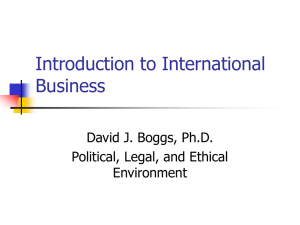
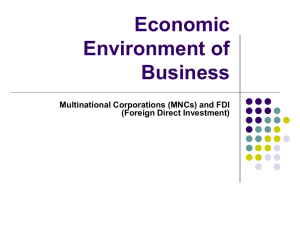
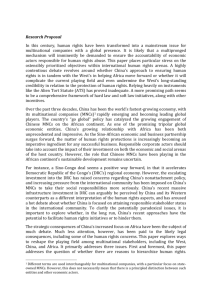
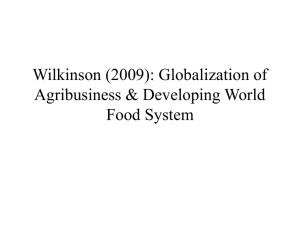



![Labor Management Relations [Opens in New Window]](http://s3.studylib.net/store/data/006750373_1-d299a6861c58d67d0e98709a44e4f857-300x300.png)